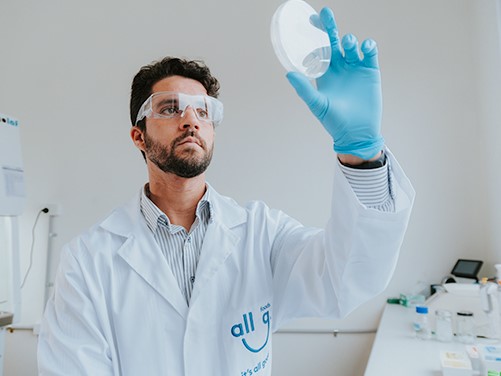Animal agriculture is the second largest contributor to greenhouse gas emissions. Thus, finding less livestock-dependent ways to meet the nutritional needs of a growing global population is crucial to both future food security and planetary health.
One way to do this is via ‘precision fermentation’, which enables bovine milk proteins to be produced without dairy cows.
This method is more efficient and environmentally sustainable than running dairy herds. However, key milk proteins are highly phosphorylated, with the number of positions of these phosphates modulating their function. Reproducing this complex pattern might take years using trial and error methods.
The video below gives a simple explanation of the importance of protein phosphorylation and how it regulates many biological processes inside living cells.
To speed up the process, Australian food and beverage manufacturer All G Foods turned to the CRC, and to scientists within UNSW Sydney’s School of Chemical Engineering and School of Chemistry.
The resulting project, titled ‘Metabolic engineering of yeast to improve the nutritional and functional properties of dairy proteins’ project, will run for approximately four years from mid-September 2022.
It will involve at least one PhD student, supervised by UNSW Associate Professor W. Alexander Donald, and will have substantial industry input from scientists at All G Foods, including Professor Roman Buckow (Chief Technology Officer), Dr Jared Raynes (Head of Precision Fermentation) and Dr Daniel Winter (Proteomic Engineer).
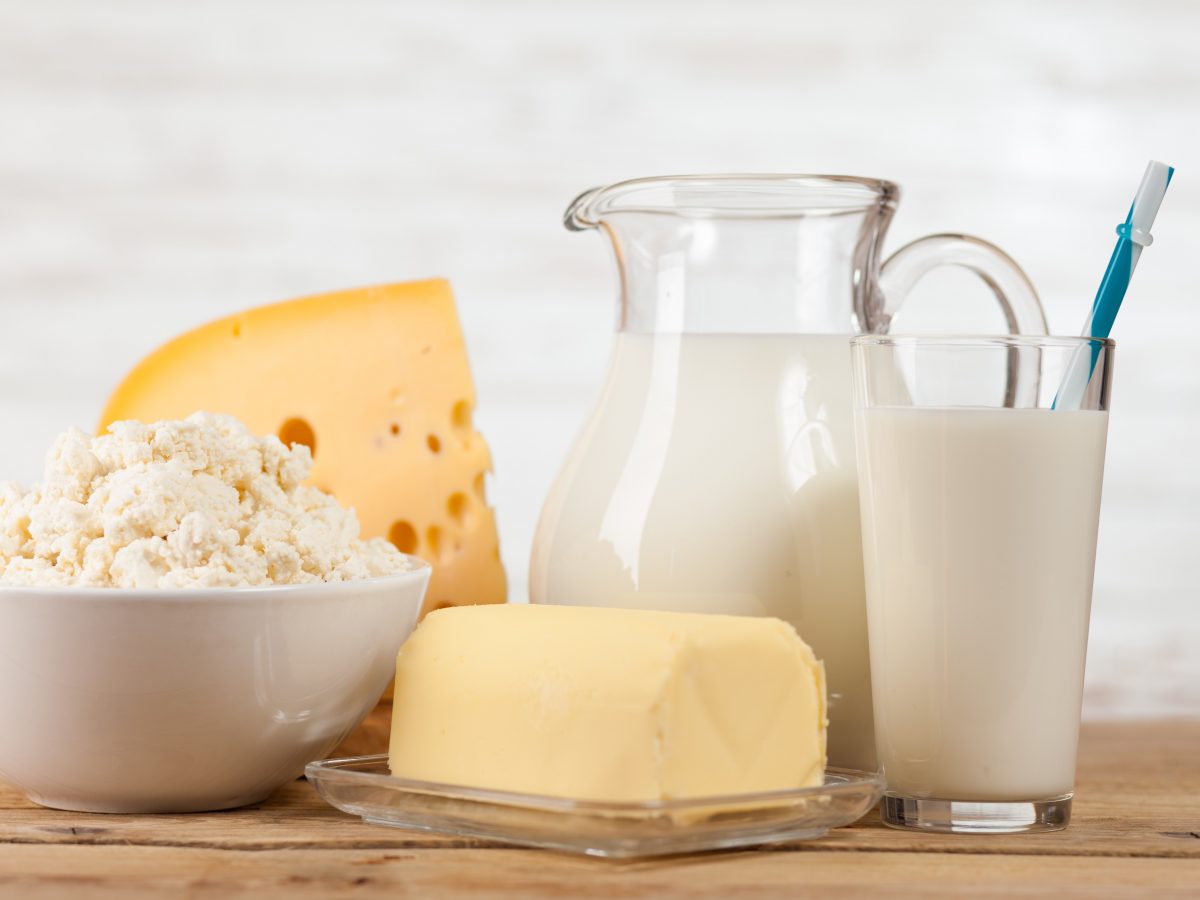
Dairy products: Soon, consumers will be able to buy animal-free products that precisely mimic their bovine-milk-based equivalents. Credit: George Dolgikh/ Shutterstock
The challenge
All G Foods needs to determine the precise microbes and fermentation conditions that will enable it to produce dairy proteins via precision fermentation that are as close as possible to their cow’s-milk-based equivalents.
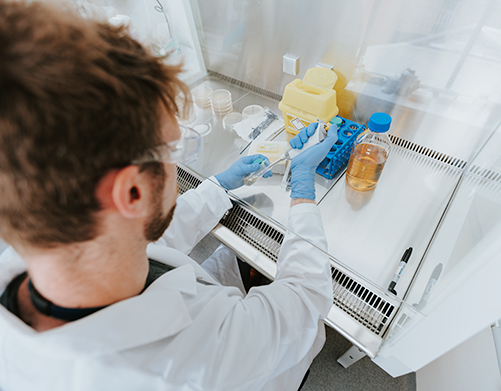
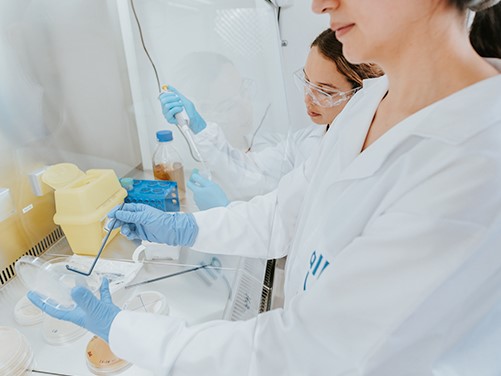
Technicians at work in the All G Foods BioLab. Credit: All G Foods
The research: developing protocols for precision fermentation
“The initial task of the project team will be to develop a high-throughput platform for screening thousands of microbial strains and precision fermentation conditions to identify those producing correctly phosphorylated proteins,” explains Associate Professor Donald.
“Selected phosphoproteins will then undergo further quality control testing, including dairy product prototyping and digestibility studies, to identify promising new ‘precision-fermented’ dairy products.”
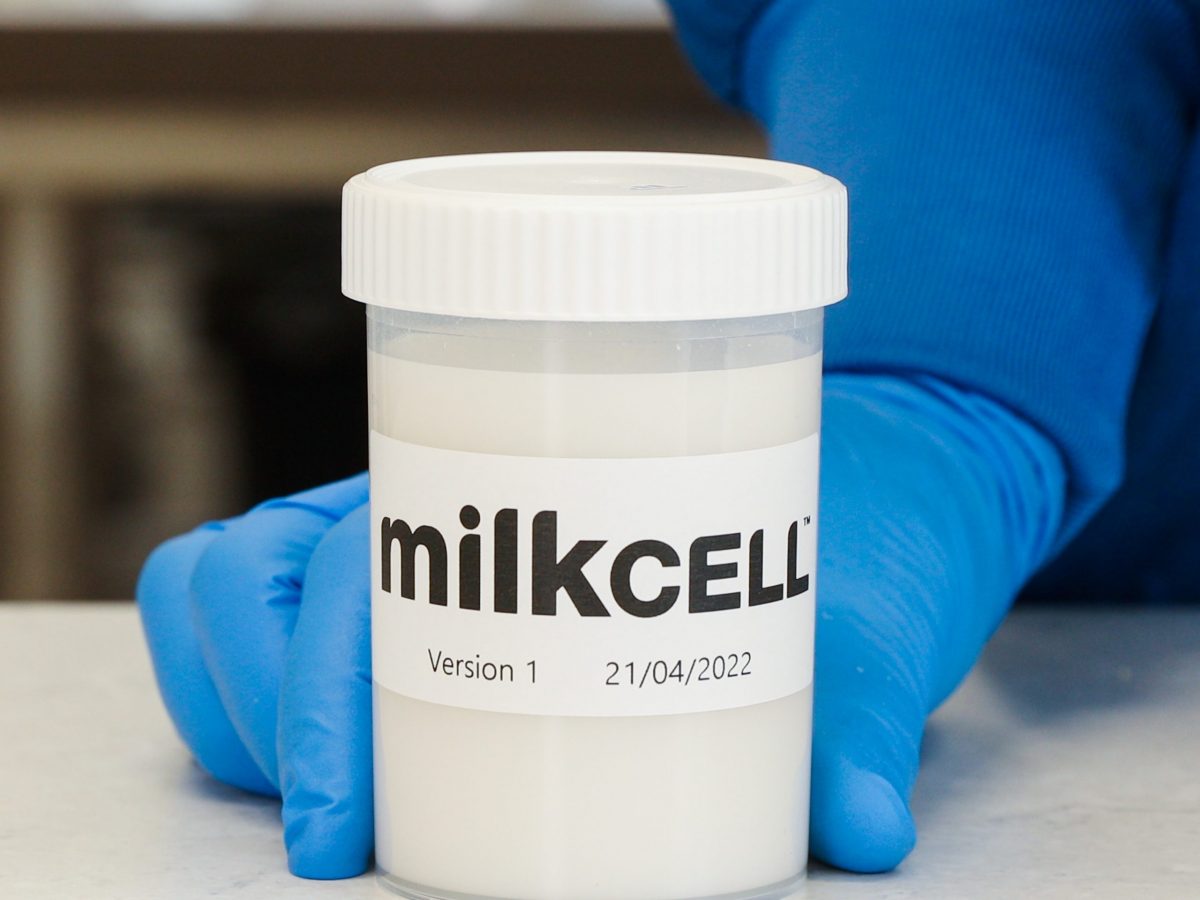
A sample of All G Foods’ milk, made by precision fermentation. Credit: All G Foods
“All G Foods is harnessing precision fermentation to produce nature-identical dairy proteins. These are incredibly complex molecules, and state-of-the-art technology and analytics will be required to confirm the exact composition of precision-fermented dairy proteins to deliver next-generation dairy,” adds Dr Winter.

Added to coffee, All G Foods Burger Milk mimics the flavour, mouthfeel and performance of cows’ milk. Credit: All G Foods
The real-world impact: healthy, high-quality, planet-friendly products
All G Foods will use the findings to develop premium precision-fermented dairy products that are nutrient-rich and mimic the functional properties of animal-sourced dairy products, but are:
- 100% vegan;
- sustainably produced; and
- greenhouse gas emissions-free.
“Products produced via precision fermentation require no animal inputs and can be made in a laboratory; thus they have a much lower carbon footprint than their livestock-dependent equivalents. They also cater to those who prefer to avoid animal-derived foods,” says Professor Buckow.
The precision fermentation ‘recipe’ for nutritious and functional non-animal dairy proteins arrived at by the project team will enable the company to produce high-quality products that will be in high demand with conscious consumers, domestically and globally.
More about All G Foods
Read more about All G Foods on the company’s website or view the short video below.
Lead image: Technicians at work in the All G Foods BioLab. Credit: All G Foods


